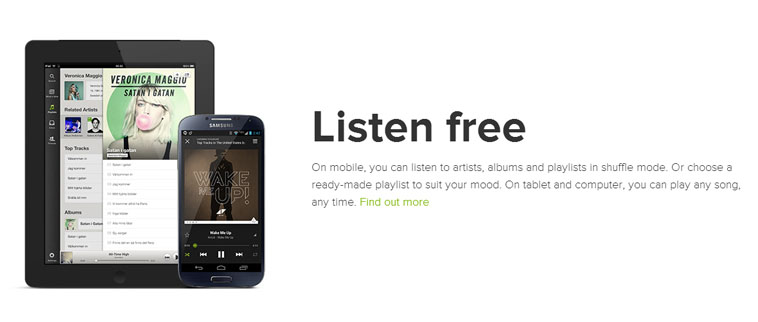Weekend Wrap-up: Spotify Goes Free; Instagram Adds Direct Instant Messaging

Thanks for checking in for this edition of the Weekend Wrap-up, where we get you all caught up on the biggest tech stories from the past week. We’ve got a lot of big ones, so let’s dive in.
Spotify Offers Free, Ad-Supported Mobile Access
In the past, you had to pay $9.99 a month for Spotify’s premium tier if you wanted access on your smartphone or tablet. This past week, however, the company decided to go ahead and offer ad-supported access to Spotify on those platforms, similar to the free access available to desktop users. Ads on Spotify aren’t quite as annoying as they are on the radio, where they seem to go on forever and ever, but they do interrupt your flow if you’re listening to a playlist you really like. If you aren’t a Spotify subscriber already, give the service a try and see if paying the $10 a month for unlimited, commercial-free access is worth your while.
Instagram Direct Brings Private Photo and Video Messaging to Instagram
Instagram has been feeling the heat from messaging apps that have a private component to them, more so after parent company Facebook’s failed attempt to acquire the increasingly popular Snapchat. The company made a move to compete by introducing a new feature called Instagram Direct, which allows users to send private photo and video messages that can be sent to a number of users — up to 15 — and will not show up in the main Instagram stream. Will this new feature capture that coveted teen demographic that Facebook is after? Only time will tell.
Twitter Changes its Block Feature, Then Walks It Back
First off, a word on Twitter’s block feature: it’s actually kind of useless. It’ll keep a certain user’s activity from showing up in your mentions feed, and it’ll also keep your tweets out of the streams of those you block. Truth be told, though, it doesn’t stop harassment or stalking because a user can always create a new account and ping you without a problem. Keeping that in mind, Twitter introduced a change to its block feature that actually gimped it further. Instead of making block more useful, it actually took away some of its functionality — for instance, the change no longer hid your tweets from those you’ve blocked. After a night of user uproar, Twitter quickly walked back the change in a blog post and all was well in the Twitterverse again.
Sony and Microsoft Claim Different Sales Feats; Nintendo Chimes In, Too
If you’re into video games at all, you’ve probably found it hard to ignore all the news surrounding the PlayStation 4 and Xbox One consoles that launched this past November. There are now NPD numbers available for hardware sales and both customers are making two entirely different claims to demonstrate how successful they’ve been. Sony is laying claim to November’s best selling console, as the PlayStation 4 has been flying off of shelves and out of warehouses almost as quickly as stock has been entered. Microsoft, on the other hand, is telling the world that the Xbox One was the “fastest-selling” game system for the month, meaning for the number of days its been on sale, it’s moved more average units per day. Nintendo, meanwhile, is claiming that its November sales were up 340 percent from its October sales, though the company isn’t offering solid hardware sales numbers.